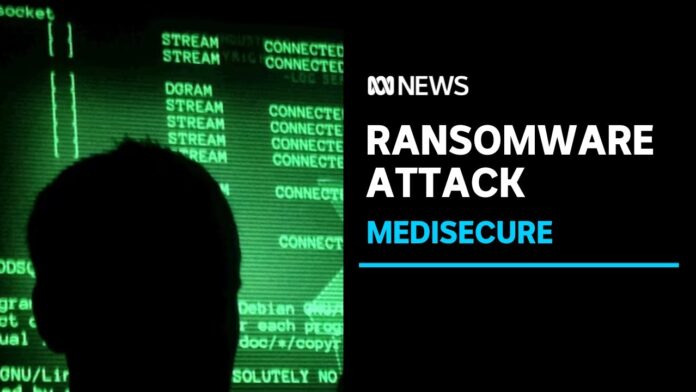National cyber security coordinators and agencies collaborate on response to major cyber attack on health sector
The Australian government has launched an investigation into a significant ransomware attack targeting MediSecure, a key player in the nation’s health sector. MediSecure, a prescription exchange service, confirmed the data breach on Thursday, revealing that personal and health information of individuals had been compromised.
MediSecure swiftly took its website offline and released a statement acknowledging the cyber security incident. The company emphasized that it had implemented immediate measures to mitigate any potential impact on its systems. MediSecure believes the breach originated from a third-party vendor, underscoring the vulnerabilities in interconnected digital health infrastructures.
“MediSecure takes its legal and ethical obligations seriously and appreciates this information will be of concern,” the company stated. It assured the public of its active collaboration with the Australian Digital Health Agency and the National Cyber Security Coordinator to manage the fallout from the breach.
Earlier, National Cyber Security Coordinator Michelle McGuinness refrained from disclosing the affected company’s identity but emphasized a coordinated governmental response. “I am working with agencies across the Australian government, states, and territories to coordinate a whole-of-government response to this incident,” McGuinness stated on the social media platform X. She noted the response was in its preliminary stages and promised to provide updates as the situation evolved.
The Australian Federal Police is also involved in the investigation. Cyber Security Minister Clare O’Neil confirmed her briefing on the breach and mentioned that the government had activated a National Coordination Mechanism. “Updates will be provided in due course,” O’Neil announced on social media platform X. She cautioned against speculation, warning that it could undermine the efforts underway to support MediSecure’s response.
This breach is the latest in a series of cyberattacks targeting Australian healthcare organizations. In October 2022, Medibank suffered a massive data breach that affected millions of Australians across its Medibank, ahm, and OSHC brands. These incidents highlight the ongoing and escalating threats facing digital health services and the sensitive nature of the data they handle.
MediSecure, a crucial service in electronic prescribing and dispensing, plays a significant role in the Australian healthcare system. The breach not only compromises individual privacy but also disrupts the broader healthcare delivery process. The company’s quick action to mitigate damage and its cooperation with government agencies reflect the severity and urgency of the situation.
The incident raises critical questions about cybersecurity measures in place within the healthcare sector. As digital health services continue to expand, the protection of sensitive health data becomes increasingly paramount. The Australian government and health organizations must prioritize robust cybersecurity protocols to safeguard against such attacks in the future.
analysis:
The MediSecure data breach underscores the growing vulnerabilities within the digital health sector. From a political perspective, the incident demands a reassessment of national cybersecurity strategies, particularly concerning critical infrastructure. The Australian government must bolster its defences and ensure seamless coordination between federal and state agencies to mitigate future risks.
Economically, the breach could have significant ramifications. The cost of resolving cyberattacks includes direct financial losses, investments in enhanced security measures, and potential fines for failing to protect sensitive data. Additionally, the reputational damage can lead to loss of trust among consumers and partners, potentially impacting the company’s market position and financial stability.
Sociologically, the breach affects the public’s perception of digital health services. Trust in electronic prescription systems and other digital health initiatives might wane, leading to increased scepticism and resistance. This scepticism can hinder the adoption of innovative health technologies designed to improve efficiency and patient outcomes.
From a gender and minority perspective, the breach may disproportionately affect vulnerable populations. Women, minorities, and marginalized groups often face greater challenges in accessing healthcare. A loss of personal health data can exacerbate these issues, leading to heightened privacy concerns and potential discrimination.
Local impacts are also significant. Healthcare providers relying on MediSecure for electronic prescriptions may face operational disruptions, affecting patient care and causing delays in medication dispensing. This can have immediate and adverse effects on patients’ health, especially those requiring timely access to medications.
Theoretical perspectives on cybersecurity highlight the importance of a proactive and layered defence strategy. The incident at MediSecure illustrates the necessity of robust third-party risk management. Companies must ensure that their vendors and partners adhere to stringent cybersecurity standards to prevent breaches from external sources.
In conclusion, the MediSecure data breach serves as a stark reminder of the vulnerabilities inherent in the digital health sector. It calls for immediate action to strengthen cybersecurity measures across all levels of healthcare infrastructure. The Australian government and healthcare organizations must work collaboratively to protect sensitive health data and maintain public trust in digital health services
